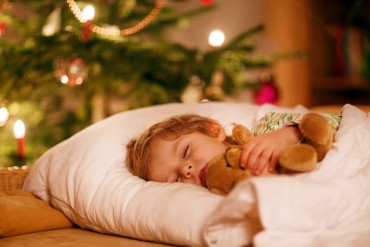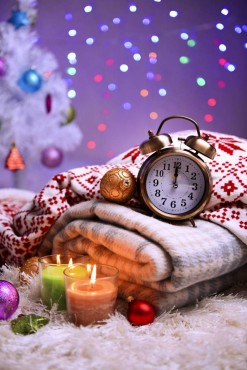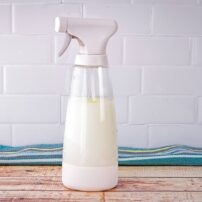 “Twas the night before Christmas, when all through the house not a creature was stirring, not even a mouse.”
“Twas the night before Christmas, when all through the house not a creature was stirring, not even a mouse.”
That’s a favorite holiday story — but what is the holiday scene in your home? No one stirring and everyone getting a good-night sleep? Or are you and other members of your family burning the midnight oil to work on extra responsibilities that this time of year requires?
What most people do not realize is that not getting enough sleep can actually make life much more difficult and the holidays “less merry.” According to the American Academy of Sleep Medicine, adults need seven to eight hours of good-quality sleep per night, quality being a key component. Children need even more. The National Sleep Foundation reports that toddlers age 1-2 years should get 11-14 hours of sleep a night, children ages 3-5 should get 11-13 hours of sleep, 6-13-year-olds should get nine to 11 hours and teens 14 years and older, eight to 10 hours.
What happens when you sacrifice your sleep time to be more productive in other areas? Sleep is a natural component of your well-being. By not getting the correct amount of hours of quality sleep, you are not allowing your body to recover from the day’s stresses and general functioning.
During sleep, your brain recharges and forms new neural pathways. This allows you to be alert for the next day. Your memory is also solidified during sleep. Many people can likely recall how difficult it is to remember what they did the day before when they are deprived of sleep that night.
Lack of sleep also affects your ability to concentrate. Problem-solving and creativity are negatively affected as well. Lack of good sleep causes an increase in anxiety and depression. You will be much quicker to anger and may have difficulty dealing with daily stresses and responsibilities. This can definitely make for a less than happy holiday for you and your loved ones.
 The immune system gains its punch while you sleep. During slumber, the body produces antibodies that allow you to fight off the germs you are exposed to. By getting enough sleep so that your immune system is able to recharge, you can ward off germs.
The immune system gains its punch while you sleep. During slumber, the body produces antibodies that allow you to fight off the germs you are exposed to. By getting enough sleep so that your immune system is able to recharge, you can ward off germs.
Should you become ill, good-quality sleep can be your insurance policy that it will not take you as long to recover. This is especially important during the holidays, when you are out shopping, at parties and at holiday events.
Lack of sleep affects your digestive system as well. Sleep deprivation increases the production of cortisol, a stress hormone. It also lowers the body’s production of leptin, which tells you that you have had enough to eat, and raises the production of ghrelin, which stimulates the appetite. Not a good combination when there are so many extra treats and goodies accessible during the holiday season.
Your heart and blood vessels take a big hit when you do not get enough sleep. When you are sleeping, your body repairs its organs. Sleep deprivation makes your heart work overtime without giving it time to repair. It has been reported that people with high blood pressure who go one night without adequate sleep can have an elevated blood pressure throughout the next day.
What can happen if you are sleep-deprived and enjoying holiday parties and events? Lack of adequate sleep magnifies the effect of alcohol on the body.
Hopefully you would not drive after drinking alcohol at a party. But what about driving after not getting enough sleep? Drowsy driving is as dangerous as drunk driving. The National Highway Traffic Safety Administration conservatively estimates that drowsy driving is responsible for 100,000 motor-vehicle accidents, 71,00 injuries and 1,550 deaths each year. As you can imagine, when you are tired, your alertness, attentiveness and reaction time are very much decreased.
 Sleep deprivation can also cause micro sleep. This is when you fall asleep for a few seconds without realizing it. It is not hard to imagine the danger of micro sleep while you are driving or working machinery.
Sleep deprivation can also cause micro sleep. This is when you fall asleep for a few seconds without realizing it. It is not hard to imagine the danger of micro sleep while you are driving or working machinery.
Quality of sleep is just as important as quantity. If you think you may be suffering from a sleep disorder — for example, sleep apnea, insomnia or upper-airway resistance — you are likely experiencing sleep deprivation all year round. Chronic sleep deprivation takes all of the side effects of short-term sleep deprivation to a whole new level. Chronic health conditions such as high blood pressure, congestive heart failure, diabetes, obesity, depression, chronic pain and dementia, to name just a few, are related to and compounded by chronic poor sleep.
It is important to make sure that sleep issues are diagnosed by a board-certified sleep physician and treated adequately.
So, during this holiday season, promise yourself that you are going to be merry! Start by taking advice from a favorite holiday poem: “Mamma in her kerchief, and I in my cap, had just settled down for a long winter’s nap.”
Chiarina Iregui is a dentist at SoundBridge Center for Dental Arts and SoundBridge Dental Sleep Therapy in Gig Harbor and is focused full-time on sleep therapy.


























Comments